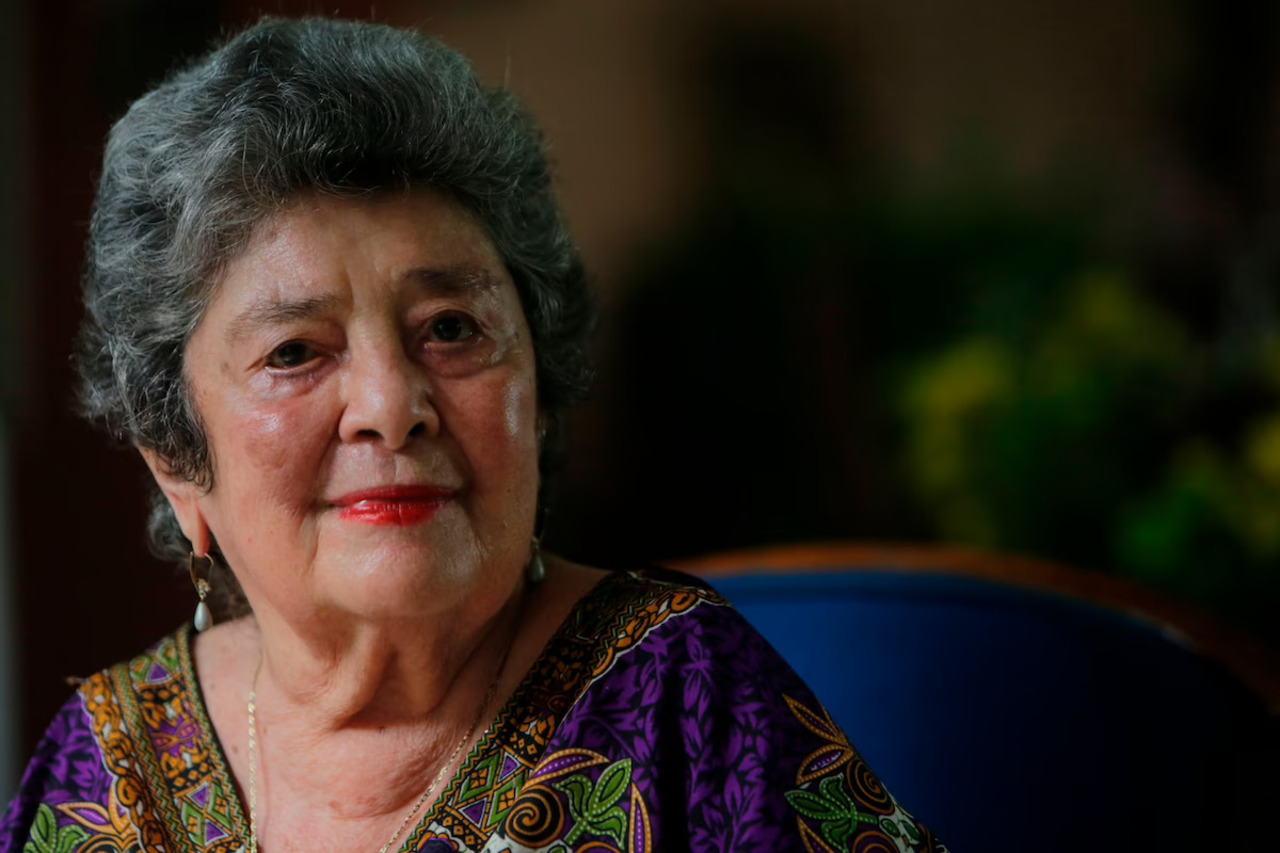
Who Was Claribel Alegría?
The poems of this Nicaraguan-Salvadoran poet focused on the reality of her time and her social commitment to the political situation.
Clara Isabel Alegría Vides, one of the most recognized female poetic voices in Central America, was born in Estelí, Nicaragua, on May 12, 1924.
Although she was born in Nicaragua, she considered herself Salvadoran, since she spent her childhood in the city of Santa Ana, in western El Salvador, where her mother was originally from. The family took refuge there after her mother was the victim of a shooting attack by a U.S. Marine. Claribel was only 9 months old. Her father, a Sandinista doctor, joined them soon after and was a fierce enemy of the Somoza regime.
Peace did not await them in El Salvador either. At the age of eight, Alegría witnessed the massacre of more than thirty thousand peasants and indigenous people in El Salvador. Her father decided to send her to study in the United States, making her promise not to marry an American. Alegría did not keep her word.
In 1943 she moved to the United States on a scholarship to study at Loyola University (New Orleans). In 1948 she graduated in Philosophy and Letters at George Washington University4 in Washington D. C., where she met the American journalist and diplomat Darwin J. "Bud" Flakoll, whom she would marry and with whom she would share her passion for writing and literature.
Their home, recalls María José Bruña, professor in the Department of Hispanic Literature at the University of Salamanca, in a conference at Casa America, became a meeting point for intellectuals and writers, as well as a place to discuss the political situation in Central America. Together they published a pioneering anthology of Latin American boom prose in the United States (New Voices of Hispanic America, 1962). They also worked together on several novels and historical works about Nicaragua's Sandinista National Liberation Front, the leftist party that took power in 1979 with Daniel Ortega.
"She was a very cosmopolitan person," Professor Bruña explains. Together with Flakoll they traveled all over the world, and his poetry picks up this spirit of "being from everywhere": a traveling spirit, which later also leaves room for the presence of classical feminine myths: Lilith, Judith, Penelope...
"In her poetry there is a writing in the key of gender, of women," Bruña recalls. Although it is inevitable that the militant social poetry typical of the 60s also appears, there are traits that she wants to distance herself from this political gaze, from a more evolutionary gaze.
RELATED CONTENT
Not in vain, when in 2017 she received the Queen Sofia Prize for Ibero-American Poetry, she says in an interview that she would repeat the revolution again, but without violence."
Author of an infinite number of books of prose and poetry, among her mentors was the Spanish poet Juan Ramón Jiménez, who corrected her first book, "Cenizas de Izalco" / "Izalco Ashes".
"Sobrevivo"/ "Survive" (1978), her most important book, won the Casa de las Americas Poetry Prize, Cuba, the equivalent of the Pulitzer Prize for the Spanish speaking world.
Claribel Alegría passed away in Managua on January 25, 2018, at the age of 93.














LEAVE A COMMENT: